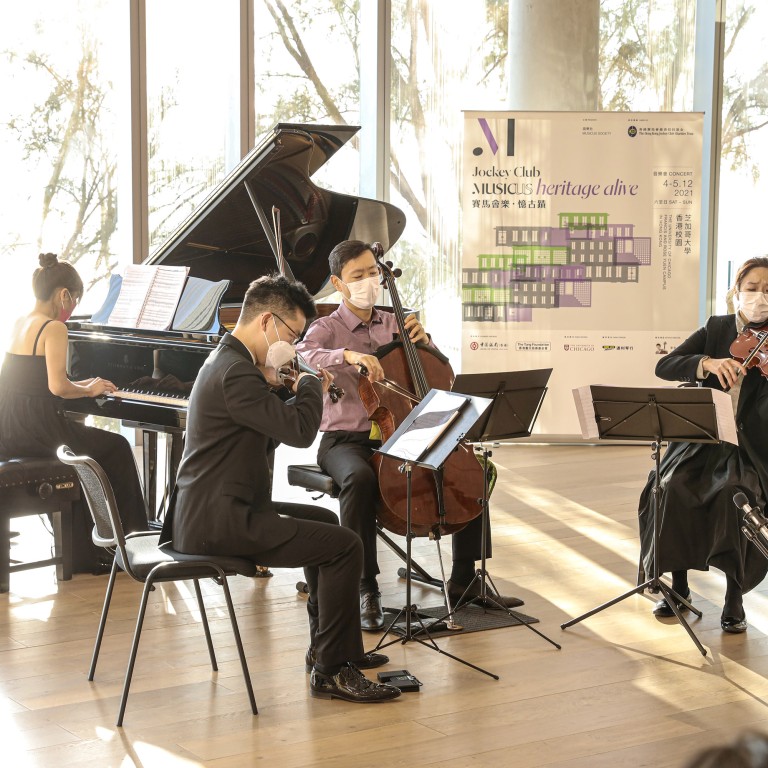The Hong Kong Jockey Club University of Chicago Academic Complex | University of Chicago Francis and Rose Yuen Campus in Hong Kong (UChicago Hong Kong Campus) today announced the results of a research exploring the link between language use and vaccine hesitancy, suggesting that a simple language intervention could help boost vaccination rates, especially when presenting information to people in bilingual populations. The study was initiated by UChicago scholars and facilitated with the help of the UChicago Hong Kong Campus’ staff in Hong Kong, where many residents are able to speak both their native language Cantonese and English.
The study commenced amid global conversations about building public trust in the safety and effectiveness of COVID-19 vaccines. Hong Kong was seen as an ideal case study by the researchers due to its large bilingual population and relatively low vaccine uptake rate at the time the study was done from March to April 2021.
Led by psychology postdoctoral researcher Janet Geipel and co-authored by doctoral student Leigh Grant and professor Boaz Keysar from the University of Chicago, the UChicago Hong Kong Campus recruited 611 participants and administered the survey to facilitate the report’s findings.
The study found that participants who read materials about the vaccine in English showed higher willingness to get vaccinated than those who only read in Cantonese. However, the researchers say that their larger finding should be thought about not in terms of one case study, but as an illustration of language’s power as a tool for enhancing trust.
According to UChicago scholars, the language which might be associated with more public trust than another should be the one that is used when communicating about things like vaccines.
“Public health campaigns therefore could use such language interventions strategically to boost vaccination uptake and other beneficial preventative behaviors such as cancer screening,” according to the researchers’ conclusion in the report. “Language interventions could contribute towards achieving the United Nations Sustainable Development Goal of health and well-being.”
The full details of the report was published in Nature: Scientific Reports on January 7, 2022.
香港賽馬會芝加哥大學學術綜合大樓|芝加哥大學袁天凡、慧敏校園(簡稱芝加哥大學香港校園)今日公布一項有關語言運用與疫苗猶豫(vaccine hesitancy)之關聯的研究結果,指出透過簡單語言干預,尤其是向雙語人口以特定語言展示資料,能有助提升疫苗接種率。是次研究由芝加哥大學的學者發起,並在其香港校園的職員的協助下進行,當中大部分的受訪者均操流利的廣東話及英語。
是次研究正值全球持續討論如何提升大眾對於新冠疫苗安全性及成效的信心的時候展開。香港擁有龐大的雙語人口,加上在2021年3月至4月調查期間的疫苗接種率亦相對較低,因此被視為理想的研究案例。
研究由來自芝加哥大學的心理學系博士後研究員Janet Geipe帶領,並由博士生Leigh Grant和教授Boaz Keysar共同撰寫。芝加哥大學香港校園合共邀請了611位人士參與研究問卷調查,並以電腦分析已蒐集的資料。
研究發現,閱讀英文版本疫苗資訊的受訪者相比閲讀中文版本的受訪者有更高的疫苗接種意欲。研究人員認爲,研究結果不但反映了語言對於疫苗接種具有正面的作用,同時亦突顯出語言乃作為構建信任的重要工具。
芝加哥大學學者亦指出,向公衆傳遞重要資訊時(如疫苗相關訊息),應使用能建構較高公信力的語言。
研究人員在總結報告時表示:「在展開公共衛生計劃時,相關當局能有策略地透過上述提及的語言干預方法來提高疫苗接種率和鼓勵如癌症篩查等的預防工作。此外,語言干預亦有助達成聯合國在健康與社會福祉方面所制定的可持續發展目標。」
是項研究報告最近於 2022 年 1 月 7 日在《自然:科學報告》上發表。



